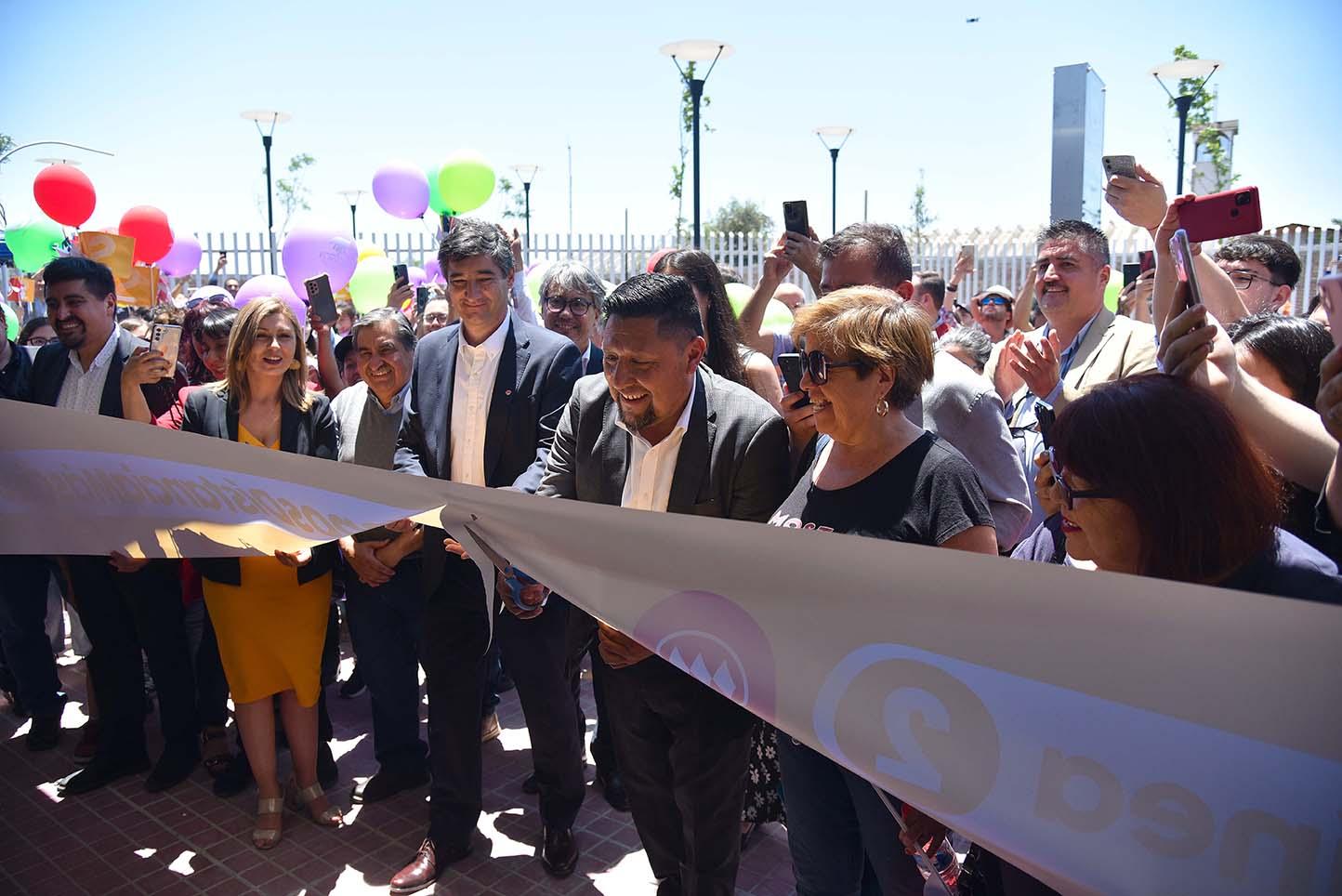 The President of Chile, Gabriel Boric, has inaugurated the “long-awaited and historic” 5.2 km extension of Santiago Metro Line 2 on November 28, 2023, in the commune of San Bernardo.
The President of Chile, Gabriel Boric, has inaugurated the “long-awaited and historic” 5.2 km extension of Santiago Metro Line 2 on November 28, 2023, in the commune of San Bernardo.
The ceremony was attended by the Minister of Transport and Telecommunications, Juan Carlos Muñoz, the Presidential Delegate of the Metropolitan Region, Constanza Martínez, the Governor of the Metropolitan Region, Claudio Orrego, the president of Metro de Santiago, Guillermo Muñoz and the mayors of the communes of El Bosque and San Bernardo.
The extension of the Santiago Metro Line 2 needed an investment of USD 409.2 million and is expected to carry 32,000 passengers each weekday.
The extension which crosses the La Cisterna, El Bosque and San Bernardo communes has four stations – El Bosque, Observatorio, Copa Lo Martínez and Hospital el Pino and provides metro connection for more than 618,000 inhabitants which will benefit faster and safer public transport services.
“Every day they [the people] will save half an hour of transport, two and a half hours a week and about 10 hours a month. They will have ten more hours to share more with their families, to be able to clear their heads, be able to talk and be able to rest. Every time we see the metro network growing or an improved public transport service, not only in Santiago, but also in regions, I feel that we are also advancing in dignity of sectors that, for a long time, were perhaps postponed,” the President of Chile said at the inauguration. Alstom will also be in charge of maintaining the most modern electronic interlocking technology in the new Line 2 depots, located in Vespucio Norte, as well as for the extension of the line.
The operational testing period started on October 25, 2023, with empty trains, to allow authorities to evaluate the operation of the railway systems prior to their full opening. Alstom has provided the most modern signalling and automated technology for this extension which will provide for a safer, more efficient and more reliable service for passengers. The technology that Alstom installed allows the movement of trains to be under the control of the interlocking system and automatic train control system (SACEM) of Alstom with an assistance to the driver. The technology guarantees the safety of passengers, optimising the acceleration and deceleration of trains thereby reducing energy consumption and providing a more comfortable ride for passengers. In addition, this will allow the time interval between trains to be maintained as on the existing line.
Passengers will travel 27 minutes between the new El Pino station and the Los Héroes interchange station between lines 1 and Santiago Metro Line 2, in the centre of Santiago, providing a 32% reduction in transfer time compared to previous travel time which took about 40 minutes.
With the extension, Santiago Metro network is 149 km long with 143 stations located on the existing seven lines.
On the city’s metro system, Alstom also delivers its Urbalis CBTC signalling under a EUR 355 million contract signed in 2022. The French company is also responsible for the maintenance of the system and the delivery of 37 five-car Metropolis trainsets.
Santiago is currently constructing Line 7 which is expected to be operational at the end of 2027. USD 2.5 billion is the total investment for the construction of the new metro line. The 26 km new line will be entirely automated and will add 19 new stations to the city’s metro system. the new line will improve transport connectivity to 1.35 million inhabitants of the Chilean capital.
The contract to install, test and commission the operation control centre for the Line 7 was awarded to Thales in January 2023 and includes the provision of maintenance services for a period of ten years.
Egis and partner CyD Ingéneria won the contract as project management assistant for this new metro line, after having worked for lines 2, 3 and 6. The 37-minute trip on the new line will reduce travel time by 54% compared to the existing bus public transport services which take 80 minutes.
Share on:








